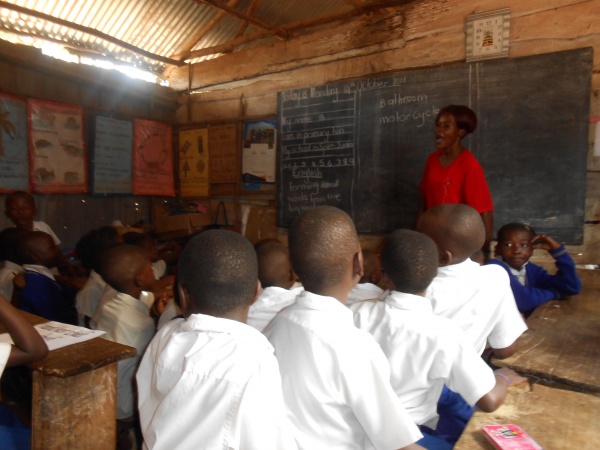 Yvonne McBlain and Malcolm Wilson of Falkirk Council Service and School Improvement Team have created a new interdisciplinary learning blog. Yvonne will develop and maintain this blog as a major element of support for IDL across Falkirk Council education establishments. She is working hard to fill the blog with useful material and valuable IDL practice. Click here to visit, and contact yvonne.mcblain@falkirk.gov.uk if you have suggestions, ideas or interdisciplinary learning practice to share.
Yvonne McBlain and Malcolm Wilson of Falkirk Council Service and School Improvement Team have created a new interdisciplinary learning blog. Yvonne will develop and maintain this blog as a major element of support for IDL across Falkirk Council education establishments. She is working hard to fill the blog with useful material and valuable IDL practice. Click here to visit, and contact yvonne.mcblain@falkirk.gov.uk if you have suggestions, ideas or interdisciplinary learning practice to share.
Category: Continuing professional development
The new Standards for Full Registration
Hazel Cunningham, Primary Probationer Supporter, Service and School Improvement Team is currently undertaking a To Lead or Not to Lead project on effective transition between the old and new Standards for Full Registration.
The aims of the project are:
* to raise awareness across Falkirk teaching staff of the main changes in the new Standards for Full Registration
* to support colleagues in analysing the differences between the old and new Standards for Full Registration in order for them to adapt their practice
* to provide an overview for managers of the main changes to enable more effective Quality Assurance and focused CPD
The focus so far has been gathering evidence of what people already know about the changes in the new Standards and looking at the best way to provide information to a wide audience of people. Twilight sessions have been run on ‘Working with the Revised Standards’ (August 2013) and input given at the PT Network meeting (Sept 2013), Curriculum Support Team meeting (Nov 2013), Early Careers Network (Jan 2014) and DHT Network (Jan 2014). Feedback from courses provided so far has been positive – “a very worthwhile course in developing my knowledge and understanding of the GTCS Standards. I feel I have gained knowledge which I can pass onto my colleagues through ERD and CAT sessions” (PT Network Meeting).

By the end of the project Hazel aims to have a package which can be used by schools to support delivery of CAT sessions on the New Standards eg. presentation or poster.
To influence the outcome of this project, post your responses to the following questions:
* How much do you already know about the New Standards ?
* What other support or information would benefit you in your present role ?
* How might this information best be conveyed to Falkirk’s teachers ?
For any further information on the project please contact Hazel Cunningham at hazel.cunningham@falkirk.gov.uk
Primary Probationer Teachers Get to Know the Teaching for Deep Learning Programme
 Yvonne McBlain and Sharon Wallace of Falkirk Curriculum Support Team recently introduced the primary probationer teachers to the Falkirk Teaching for Deep Learning Programme. During this introduction, participants experienced programme session 1 “What is Understanding”. This session explores the concept of understanding and has been used by a number of teacher learning communities in Falkirk schools. Here are some of the definitions of understanding created by the probationer teachers:
Yvonne McBlain and Sharon Wallace of Falkirk Curriculum Support Team recently introduced the primary probationer teachers to the Falkirk Teaching for Deep Learning Programme. During this introduction, participants experienced programme session 1 “What is Understanding”. This session explores the concept of understanding and has been used by a number of teacher learning communities in Falkirk schools. Here are some of the definitions of understanding created by the probationer teachers:
Understanding is applying and transfering knowledge flexibly as well as being able to teach others.
Understanding is achieved through repetition (perhaps in different contexts).
Understanding is transferring the skill and knowledge to another context. Embedding the skill through revisiting.
– apply and transfer knowledge to other areas of the curriculum
– be able to explain to others
Click here to access Session 1 through Glow, and here to see the power point presentation from Sharon and Yvonne’s session with probationer teachers.
Coffee, croissant, controversy Planning Meetings
 Yvonne McBlain and Karen Thomson of Falkirk curriculum support team facilitated two lively sessions recently with principal teachers, depute and head teachers. The initial session explored how our establishments were including each element of the NAR planning flow chart in their planning processes. Discussion focused on the numbers of layers of planning being used, and how this was contributing to the improvement of teaching and learning. Participants requested a second session to enable them to bring along and share their planning layers and documentation.
Yvonne McBlain and Karen Thomson of Falkirk curriculum support team facilitated two lively sessions recently with principal teachers, depute and head teachers. The initial session explored how our establishments were including each element of the NAR planning flow chart in their planning processes. Discussion focused on the numbers of layers of planning being used, and how this was contributing to the improvement of teaching and learning. Participants requested a second session to enable them to bring along and share their planning layers and documentation.
So, on 10th December Julie McKenna shared how Airth Primary are using a digital tool to manage their planning. Staff use this system to create discrete and interdisciplinary units of work in the form of planning wheels with skills and other information noted. They are able to track both the depth and coverage of experiences and outcomes and the progression of skills. At Airth PS, all staff collaborate to create the annual long term plan, and their planning wheels form the rest of their planning structure, with any other detail being recorded in the weekly plans. Julie and her staff now intend to develop how they integrate their assessment and recording into their planning.
Jill Stocks and Andrew Watson from Bonnybridge Primary shared how they use the Learning Unlimited tool “Realistic Record Keeping and Powerful Planning”. Bonnybridge PS staff work from the experiences and outcomes to create annual master plans for literacy, numeracy, and non core learning. Further detailed planning takes place in weekly plans, meaning that the school has two layers of planning. You can click here to see a collection of the master plans for second level. Staff are also using maths pathways to support their planning of progression in specific numeracy skills – click here to view. Jill and Andrew now intend to develop their tracking of coverage and depth of learning within the E & Os. They value the way this planning tool has enabled a significant shift away from a resource-led approach to planning, increased focus on the principles of curriculum design, and a reduction of paperwork for planning. Early years senior managers also shared their development of floor books as their main planning layer in nursery settings. They value the way floor book planning makes visible the relevance, personalisation and choice and progression of learning for pre and ante-pre school children. It was noted that not all practitioners are comfortable yet with not having additional layers of planning and documentation.
The rest of the meeting consisted of really valuable discussion of how to effectively integrate assessment, manage tracking and monitoring, and how to enhance awareness of when each of the four contexts for learning is being addressed. Click here to see the power point presentation for this second meeting.
Physical Education Conference
Morag Young and Morag Simpson, Physical Education Lead Officers for Falkirk Council Curriculum Support Team attended the inaugural conference for the Scottish Association of Physical Education Teachers (SATPE). This was held at Tulliallan Castle on Saturday 2nd November 2013. The occasion highlighted the importance of professional dialogue, the sharing of good practice and the unity of practitioners across the country. The key note speaker was Paralympian David Smith, a truly inspirational individual.
Presentations from the event will be available from the website shortly. www.SATPE.co.uk
Individuals can join SATPE for £25 or a primary school membership costs £40. For this membership you will gain access to an online journal, teaching resources, notification of relevant events and discounts from association sponsors.
The PE Lead Officers across Scotland are encouraging schools to join the association to assist their professional development in reaching the 2 hour PE target.
New Higher Order Skills CPD
 Yvonne McBlain, support teacher with Falkirk Council Curriculum Support Team delivered some new professional learning around the Higher Order Skills on 7th November. Click here to take a look at this session and contact Yvonne on yvonne.mcblain@falkirk.gov.uk for more detail about this course.
Yvonne McBlain, support teacher with Falkirk Council Curriculum Support Team delivered some new professional learning around the Higher Order Skills on 7th November. Click here to take a look at this session and contact Yvonne on yvonne.mcblain@falkirk.gov.uk for more detail about this course.
Feedback from participants in the course was very positive on the whole, and impact reported included:
I will continue to use the HOTS within the classroom and embed this within planning.
I will use the skills matching exercise as part of a professional discussion surrounding skills for learning which will take place within my establishment.
A greater understanding of the Higher Order skills and examples of how they can be used in practice.
A number of delegates suggested that the course was very comprehensive and would benefit from being run over two sessions and/or repeated, and Yvonne will be addressing this feedback.
Exciting CPD from new partnership!
 Yvonne McBlain from Falkirk Curriculum Support Team met with Ray McFadyen, Education Officer from the Museum of Scottish Railways on 12th November. Ray shared the new museum education support pack (click to view) which he has just completed, and described the themed artefact handling boxes he has created (click to view). Yvonne and Ray talked about the range of steam and diesel-driven machinery and artefacts which could stimulate ideas for teachers of technology. Consequently, they will collaborate to create and organise a CPD Manager course offering secondary DET teachers the opportunity to visit the museum collection after hours. A visit to the museum and railway station next to Bo’ness harbour offers a whole range of creative teaching possibilities (click to explore how a visit could look). Yvonne and Ray will work with Sharon Wallace, Primary Curriculum Support Officer to plan and deliver an innovative series of CPD sessions which will include a site visit. These sessions will allow teachers to explore how the museum collection and location could be used to progress literacy skills across learning, in an active, engaging and creative way – within and outwith the classroom! Keep your eye on CPD Manager – we hope to upload these descriptors soon.
Yvonne McBlain from Falkirk Curriculum Support Team met with Ray McFadyen, Education Officer from the Museum of Scottish Railways on 12th November. Ray shared the new museum education support pack (click to view) which he has just completed, and described the themed artefact handling boxes he has created (click to view). Yvonne and Ray talked about the range of steam and diesel-driven machinery and artefacts which could stimulate ideas for teachers of technology. Consequently, they will collaborate to create and organise a CPD Manager course offering secondary DET teachers the opportunity to visit the museum collection after hours. A visit to the museum and railway station next to Bo’ness harbour offers a whole range of creative teaching possibilities (click to explore how a visit could look). Yvonne and Ray will work with Sharon Wallace, Primary Curriculum Support Officer to plan and deliver an innovative series of CPD sessions which will include a site visit. These sessions will allow teachers to explore how the museum collection and location could be used to progress literacy skills across learning, in an active, engaging and creative way – within and outwith the classroom! Keep your eye on CPD Manager – we hope to upload these descriptors soon.
[kml_flashembed movie="http://www.youtube.com/v/dMCFFRirHds" width="425" height="344" allowfullscreen="true" fvars="fs=1" /]
A Saturday Morning spent thinking about Employee Review and Development!
Last Saturday morning Anne Pearson, Curriculum Support Manager, headed down to the Falkirk Football Stadium to team up with Colin Finlay who was hosting the event in his new role as Falkirk EIS Learning Representative. Over 80 teachers from Falkirk, Clackmannanshire, Stirling and North Lanarkshire came along and whilst football was not on the agenda, we engaged in continuous professional development all about Professional Update and Employee Review and Development (ERD) supported by delicious bacon rolls and lots of hot drinks. Ken Muir,the Chief Executive of the General Teaching Council Scotland and Larry Flannagan the EIS General Secretary shared their thinking on the importance of high quality CPD, how this links with Professional Update and is a key factor in school improvement. To quote McKinsey, “The quality of an educational system cannot outperform the quality of its teachers. The only way to improve outcomes is to improve learning and teaching.” These national and international perspectives have informed the rationale for Falkirk Education Service’s ERD systems and processes. Anne Pearson focussed on 4 key elements of effective ERD  and shared exemplar Work Profiles, explaining how these were developed and link to the revised national standards that went live in August this year. The morning ended with a Question and Answer session, the panel being made up of Ken Muir, Larry Flannagan, Anne Pearson and the local EIS Secretary Margaret Smith. The presence of such a large group of committed teachers on a weekend illustrates there is a high level of interest in Professional Update and review and development. Good teachers wanting to know how to be even better! Education Services look forward to continuing our partnership with our professional associations.
and shared exemplar Work Profiles, explaining how these were developed and link to the revised national standards that went live in August this year. The morning ended with a Question and Answer session, the panel being made up of Ken Muir, Larry Flannagan, Anne Pearson and the local EIS Secretary Margaret Smith. The presence of such a large group of committed teachers on a weekend illustrates there is a high level of interest in Professional Update and review and development. Good teachers wanting to know how to be even better! Education Services look forward to continuing our partnership with our professional associations.
Effective Teaching – Uganda style
Yvonne McBlain, from Falkirk Council curriculum support team was fascinated to hear about the parallels observed by Sarah Ritchie and Jill Stocks during their recent visit to Uganda. Sarah embarked upon this visit expecting to focus on the differences between Scottish teaching and that delivered in Uganda. However, instead she has been struck by the similarities of the fundamental elements of teaching in Kampala and Bonnybridge! One of her first observations was the sharing of learning objectives with pupils – in Kampala classrooms these are very effectively shared with pupils – despite the differences in resourcing levels there. Teachers in Uganda are challenged by very large classes, small classrooms and limited resources – a chalk board and a piece of chalk basically. In spite of these limitations these teachers are making extremely effective use of what we would call formative assessment. Other aspects of practice familiar to Scottish teachers commonly used were: pupils teaching pupils, active strategies used to gauge understanding, regular peer feedback, a very natural and integrated use of outdoor learning, and a very creative range of randomising techniques. Teachers at every stage ensured that pupils had a clear understanding of success criteria for their tasks. The ethos and life of this Kampala school was overwhelmingly positive and affirmative and achievement and learning was truly and enthusiastically celebrated. Click here to view a page of teacher planning Uganda style, and click on the pictures at the start of this post to see short video clips taken by Sarah during her visit.






